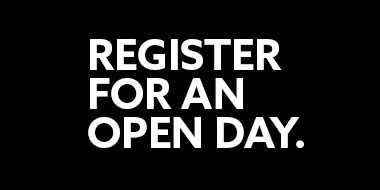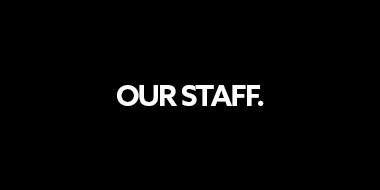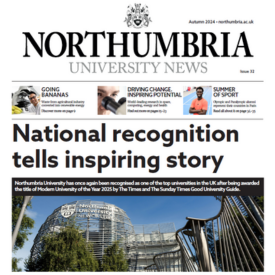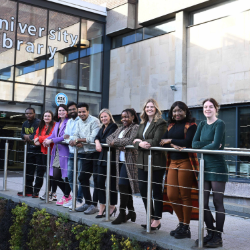| |
|
|
| 31 March 2022 |
Dr. Konstantina Spanaki |
Audencia Business School |
| 18 November 2021 |
Dr. Ayse Kocabiyikoglu |
Sabanci University |
|
17 November 2021
|
Prof. Marc Reimann
|
University of Graz, Northumbria University
|
|
26 May 2021
|
Dr. Mahmood Shah |
Northumbria University
|
|
28 April 2021
|
Prof. Paul Goodwin |
University of Bath |
| 17 March 2021 |
Asam Salim |
ATOS |
| 24 February 2021 |
Prof. Jason Thatcher |
Temple University |
|
10 February 2021
|
Dr Femi Olan
|
Northumbria University |
| 3 February 2021 |
Dr Femi Olan and Dr. Mahmood Shah |
Northumbria University |
| 16 December 2020 |
Dr. Jennifer Murray |
Edinburgh Napier University |
| 18 November 2020 |
Dr. Megan Crawford
|
Edinburgh Napier University |
| 9 October 2020 |
Prof. Michael Bourlakis
|
Cranfield University
|
| 23 September 2020 |
Dr. Curt Friedel
|
Virginia Tech |
| 12 February 2020 |
Dr. Linh N K Duong
|
University of Lincoln |
| 27 November 2019 |
Dr. Thais Webber |
University of St Andrews |
| 23 October 2019 |
Prof. Russell Barton
|
Penn State University
|
| 26 June 2019 |
Prof. Savvas Papagiannidis |
Newcastle University |
| 24 June 2019 |
Dr. Shari De Baets |
Ghent University |
| 5 June 2019 |
Dr. Colin Richardson |
Northumbrian Water |
| 22 May 2019 |
Prof. George Wright |
University of Strathclyde |
| 08 May 2019 |
Prof. Marc Reimann |
University of Graz, Northumbria University |
| 01 May 2019 |
Dr. Alireza Shokri and Prof. Dilek Onkal |
Northumbria University |
| 20 March 2019 |
Prof. Emel Aktas |
Cranfield University |
| 27 February 2019 |
Prof. Renata Walczak |
Warsaw University of Technology |
| 21 November 2018 |
Dr. Wasim Ahmed |
Newcastle University |
31 March 2022
AI and Data Sharing in Contextual Environments: Characteristics,
Challenges and Access Control
Dr. Konstantina Spanaki
Audencia Business School
The
applications of AI, data analytics and intelligent processes pose multiple
challenges and managerial implications. The vast range of challenges could span
from difficulties in using and adopting these applications, identifying the
required skills and capabilities for the employees, to a wide variety of
productivity and performance problems. There are multiple opportunities but
also respective challenges for the supported supply management tasks;
therefore, the research should support the operations by promoting AI
approaches for smart and intelligent operations in multiple industrial sectors
while predicting weaknesses and risks.
There is
emerging anecdotal evidence that AI and data analytics for manufacturing and
production can fundamentally reshape the existing operational practices and
tasks. However, scaling up AI usage could have some significant bottlenecks,
such as misuse of AI algorithms, privacy breaches and data accessibility. Like
other technological developments, the use of AI just like other technological
developments, comes with its own challenges and risks that can lead it to being
misused, leading to user distrust, and raising ethical concerns. The
discussion, hence, aims to promote the research around the area of AI and data
sharing in contextual environments and the associated implications and
applications.
18 November 2021
How Does Workload Affect Test Ordering Behavior of Physicians? An
Empirical Investigation
Dr. Ayse Kocabiyioglu
Sabanci University
We study the relationship between workload and
the test ordering behavior of physicians, in an operational context where the
service episode is completed when a test order is given. We define workload in
two forms: the unfinished workload, that is, the number of patients waiting to
be examined, and the finished workload, that is, the cumulative number of
patients examined before a given patient in a workday. We investigate their
effect on the probability of a test order, and the number of tests ordered for a
patient that receives a test order. Empirical analysis of data from a public
research and training hospital shows that these workload measures have
different effects: a higher unfinished workload increases the probability of
giving a test order, while a higher finished load decreases the number of tests
ordered for those patients who receive a test order. The observed effects of
the operational factors workload and finished load, which have no relation to
the patients’ complaint and hence, should have no bearing on the eventual
diagnosis, have significant implications for the quality and cost of health
care. We also report the results of several robustness tests which confirm our
results.
17 November 2021
Sell through your rival: the impact of TPR regulation on the closed-loop
supply chain design -- The rocky road from first submission to final acceptance - PART 1
Prof. Marc Reimann
University of Graz, Northumbria University
In this series of (two) seminars I will talk about the entire
submission and reviewing process of a paper until its final acceptance. In the
first session I will present the original spin of the paper together with the
reviewer comments that led to the first rejection at POM, one of our top field
journals. In the second session, I will talk about our response to this
rejection, as well as the further reviewing process.
26 May 2021
Packaging a paper for publishing success: An
editor's perspective
Dr. Mahmood Shah
Northumbria University
This is the third part of the talk that will focus on what the key ingredients of an ABS3*/4* journal paper are and how editors make decisions about papers. It will include some tips on how to prepare papers for good journals and how to avoid some common mistakes in preparing and positioning.
28 April 2021
MINIMOD: A simple and effective method for supporting multiattribute
decision making?
Prof. Paul Goodwin
University of Bath
Making decisions where there are a
large number of attributes can be challenging because of the need to make
trade-offs between the attributes. Several methods have been developed to
support decision makers facing such decisions. These include those based on
multiattribute utility theory, the Simple Multiattibute Rating Technique,
(SMART) and Even-Swaps. However, these methods, themselves, often involve
difficult judgments which, as a consequence, can be unreliable. The strategy
of heroic approximation posits that that the inaccuracies associated with a
simple approximate model of a decision problem are likely to be outweighed by
the more reliable judgments that result from the simpler questions posed to
the decision maker. In this spirit, a very simple method, MINIMOD (minimal
modelling), is proposed for supporting decision makers. The method was tested
on 250,000 simulated decision problems and was found to perform well when
assessed based on its hit rate (the percentage of times it identified the
same best option as SMART) and the utility loss resulting from the
approximation.
17 March 2021
How to embed Business Analytics in a Data Driven Organisation
Asam Salim
ATOS
This presentation today is on how to embed
Business Analytics in a Data Driven Organization. This talk will focus on the
key areas of implementation that shouldn’t be overlooked and the pitfalls to
avoid, to help accelerate business value back to the organisation.
24 February 2021
Seven Habits of Highly Effective Writers: Developing Competencies for High
Impact Publication
Prof. Jason Thatcher
Temple University
In his webinar, Prof. Jason Thatcher will
outline habits and best practices for crafting a high impact research career. He
will provide tips and tricks that have powered his collaboration with
co-authors on three continents.
10 February 2021
Meet our Editors – An Editorial Perspective on Journal Publications Part 2
Dr Femi Olan
Northumbria University
This is the second part of the talk that will focus on what are the key ingredients of an ABS3*/4* journal paper and how editors make decisions about papers. It will include some tips on how to prepare papers for good journals and how to avoid some common mistakes in preparing and positioning.
3 February 2021
Meet our Editors – An Editorial Perspective on Journal Publications
Dr Femi Olan and Dr. Mahmood Shah
Northumbria University
This talk will
focus on what are the key ingredients of an ABS3*/4* journal paper and how
editors make decisions about papers. It will include some tips on how to
prepare papers for good journals and how to avoid some common mistakes in
preparing and positioning.
16 December 2020
Decision making in suicide risk assessment: Current approaches,
subjective understandings, and person centeredness
Dr. Jennifer Murray
Edinburgh Napier University
While suicide risk assessment has been
highlighted as one of the most important features of managing patients
presenting with suicidal intent (Simon, 2011) and should be a key competency
for any individual working with psychiatric patients (Scheiber et al., 2003),
risk is not adequately assessed in approximately 60% of successfully completed
inpatient suicides (Burgess et al., 2000). No standardised guidelines
exist in the assessment and management of patients at risk of suicide. To
understand clinician’s subjective experiences of working with people at risk of
suicide and how this influences their decisions, a different approach is
therefore required. One such approach is through exploring aspects of ‘soft
intelligence’ within clinical practice (Martin et al., 2015) such as person
centred care (Marijke, 2012). Through a series of studies, this programme of
research investigated what information clinicians use when assessing suicide
risk, whether they use heuristic or rational decision making, and their
subjective perceptions of person centred care when managing patients at risk of
suicide. The approaches used included a quasi-experimental eye-tracking study,
one-to-one qualitative interviews, and a follow-on Q-Methods study. The outcomes
of these studies and their practical implications will be discussed.
18 November 2020
The Value of Mass Produced COVID-19 Scenarios
Dr. Megan Crawford
Edinburgh Napier University
From January to June 2020, hundreds of singly focused scenarios were generated across the world, from a variety of sources, that reflect on a variety of future industries. The motivation behind these scenarios was to better inform governments and organisations on their fast-paced strategic developments through the pandemic. We collected just over 130 open-sourced and in-house COVID-19 scenarios to evaluate their value to the clients and industries they were meant to serve. We build from Cairns & Wright’s (2020) reflection on the quick accumulation of scenarios generated in response to the COVID-19 pandemic and their three assumption: scenarios are largely artefacts reflecting the realities of the time, scenarios take a simplistic, global perspective, and the mode of delivery is to a general audience. To measure the three assumptions against our scenario repository, we employ eight dimensions of the Comprehensive Scenario Intervention (CSI) typology (Crawford, 2019). Our work aims to shed light on the value of these quickly developed, issue-based scenarios, and offer guidance on how to maximize the efficacy of future scenario planning on strategic foresight and planning.
9 October 2020
How food supply chains are
changing following Covid-19
Prof. Michael Bourlakis
Cranfield University
The seminar will focus on the current
Covid-19 crisis and its impact on supply chains in general and on food supply
chains in particular. The seminar will start by analysing other, major crises
taking place in the food supply chain in the past years and it will illustrate
how Covid-19 is different and its transformation impact on the food supply
chain. The seminar will suggest possible avenues and ways forward to address
some of the challenges posed by Covid-19 and it will illustrate specific ideas
which can be incorporated and taken up by various food supply chain
stakeholders. It will also identify areas for further research urgently needed.
23 September 2020
Leading
Organizational Change with Adaption and Innovation
Dr. Curt
Friedel
Virginia Tech
The
supply chain collaboration has gained significant attention, especially in the
presence of disruptions. This study presents findings from a systematic
literature review to answer the question: how collaborations help supply chains
respond and recover from a disruption. A total of 157 papers from the year 2000
were studied. The thematic and descriptive analysis identified usefulness, used
research methodologies, collaboration mechanisms, and influential factors in
collaboration. This comprehensive review provides in-depth insights into the
current state of literature, proposes a research framework, and identifies
several future research directions. It also highlights the role of each
collaboration mechanism based on each severity level of disruptions.
12
February 2020
Supply chain collaboration in the presence of disruptions
Dr. Linh N K Duong
University of Lincoln
The supply chain collaboration has gained significant attention,
especially in the presence of disruptions. This study presents findings from a
systematic literature review to answer the question: how collaborations help
supply chains respond and recover from a disruption. A total of 157 papers from
the year 2000 were studied. The thematic and descriptive analysis identified
usefulness, used research methodologies, collaboration mechanisms, and
influential factors in collaboration. This comprehensive review provides
in-depth insights into the current state of literature, proposes a research
framework, and identifies several future research directions. It also
highlights the role of each collaboration mechanism based on each severity
level of disruptions.
27 November 2019
The role of BPMN models and simulation for healthcare resource planning
Dr. Thais Webber
University of St Andrews
There is an unquestionable need to improve healthcare processes across
all levels of care in order to optimise the use of resources whilst
guaranteeing high quality care to patients. However, healthcare processes are
generally very complex and have to be fully understood before enhancement
suggestions can be made. Modelling with widely used notation such as BPMN
(Business Process Modelling and Notation) can help gain a shared understanding
of a process, but is not sufficient to understand the needs and demands of
resources. Simulation can be used for both strategic and operational
decision making in healthcare organizations. Thais will share her experiences
acquired in a recent joint research project between Brazil and Scotland. An
approach to enrich BPMN models with structured annotations is proposed to
enhance performance analysis and resource allocation in the organization. The
case study was an A&E department of a sizeable hospital in the South of
Brazil.
23 October 2019
Metamodel-based Forecast of Lead Time Quantiles
Prof. Russell Barton
Smeal College of Business, Penn State University
Real-time control has become increasingly difficult as manufacturing
systems and their models become more complex in terms of job variety, machine
flexibility and machine reliability. We consider a control policy to be a set
of rules governing when jobs are released to the manufacturing floor (and
perhaps to which machine in a flexible system). The objective of a control
policy is to maximize efficiency (machine utilization) while meeting job demand
times. A critical quantity in this planning is the quantile (say the 90%
quantile) of forecast completion time for a job released to the system in its
current state. We propose an analysis method, based on offline simulation of a
fraction of all possible states, that fits a metamodel to predict the
state-based lead time quantile. The rapid calculation enabled by the metamodel
allows real-time support of a dynamic strategy for job release. Our approach
builds on related work in quantile metamodeling, design of simulation
experiments, and simulation in production planning. (This work is joint with
Giulia Pedrielli.)
26 June 2019
Submitting and reviewing articles for Technological Forecasting and
Social Change journal
Prof. Savvas Papagiannidis
Newcastle University
TFSC (3* ABS2018, IF: 3.129) is a major forum for those wishing to deal
directly with the methodology and practice of technological forecasting and
future studies as planning tools as they interrelate social, environmental and
technological factors. The event will focus on the experience of Prof.
Papagiannidis as an Associate Editor for Technological Forecasting and Social
Change. The audience will have the opportunity to ask questions about the
submission and reviewing process of the journal.
24 June 2019
Are people able to distinguish good forecasting models from bad
forecasting models?
Dr. Shari De Baets
Ghent University
Judgmental forecasting is pervasive in business practice (Fildes &
Goodwin, 2007), with the most recent number indicating a combination approach
of judgment and statistics of 55% and rising (Fildes & Petropoulos,
2015). Forecasting support systems allow the user to apply many different
types of forecasting methods to the data series. However, no approach is
universally superior to all others. Forecasting competitions have shown that
which approach is best depends on the characteristics of the data series (e.g.
Makridakis & Hibon, 2000). Thus the forecaster has to decide which approach
to use. But can people truly assess forecasting quality? In two
experiments (N1 = 191, N2 = 161), we investigate (1) whether people are able to
distinguish a ‘good’ from a ‘bad’ forecast, (2) whether this model selection
outperforms the average, and (3) whether the quality of their model affects the
participant’s subsequent forecasting behavior.
5 June 2019
Knowledge across boundaries
Dr Colin Richardson FBCS CITP
Northumbrian Water
One of the most challenging elements within industry today is the ever
growing need for knowledge sharing across different organisations. The ability
to share a common understanding can be difficult, time consuming and
costly. Often this leads to a lot of projects failing to deliver desired
outcomes or failing completely. Colin will share his experiences and challenges
to overcome issues in these areas and also perceptions of the environment as a
whole. He will also discuss impacts arising both technical and political
which influence the hunger for evolutionary growth in the knowledge management
environment.
22 May 2019
Publishing your research: an editor's perspective
The pros and cons of alternative ways of making decisions in the face of
uncertainty about the future
Prof. George Wright
University of Strathclyde
The first part of Prof. Wright's talk will encourage a discussion on the
"gamesmanship" of getting papers published and on how to supervise
PhD students with the aim of achieving publications during the apprenticeship
process. Given time allows, the second part of his talk will provide an
introduction to different ways of making decision in the face of uncertainty
about the future and will encourage discussion on this important topic.
08 May 2019
Proprietary Parts as a Secondary Market Strategy
Prof. Marc Reimann
University of Graz, Northumbria University
Introducing proprietary parts to gain a competitive edge is a
well-known, yet poorly understood strategy OEMs adopt. In this paper, we
consider an OEM who sells new products and competes with an independent
remanufacturer (IR) selling remanufactured products. The OEM contem- plates
proprietary parts to manage the secondary market for remanufactured products.
Thereby, the OEM designs its product to balance the trade-off between the cost
of proprietariness and the extra income from selling the proprietary spare
parts to the IR. Deterring market entry by the IR through prohibitively pricing
the proprietary spare parts, an OEM strategy observed in several industries, is
only optimal when the willingness-to-pay for remanufactured products is low.
Otherwise, the OEM benefits more from sharing the secondary market profits with
the IR through the use of proprietary parts. Finally, we find that the OEM can
also use proprietary parts to strategically deter entry by the IR and
discouraging her to collect the cores. This can support the OEM’s decisions to
engage in remanufacturing even in the case of a collection cost disadvantage.
While the introduction of proprietary parts is detrimental to both IRs and
consumers, we show that OEM remanufacturing softens this loss for the
consumers. Additionaly, I will also talk a little about the submission,
refereeing and revision process of such a paper.
01 May 2019
Celebrating Failures and Pathways to Research Success
Dr Alireza Shokri and Prof. Dilek Onkal
Northumbria University
The topic of this workshop is “Celebrating Failures and Pathways to
Research Success” and it is jointly hosted by Decisions &
Analytics and Global Operations and Supply Chain Competitiveness
(GLOPSCO) RIGs. The format will be a panel discussion where colleagues will
share their failures in relation to research publications and grant
applications so that we can all learn from our colleagues’ lessons and
experiences to enable a supportive platform for enhanced success towards REF
2021 and beyond. We intend to encourage colleagues to share their experiences
of rejection (and not success this time) of their journal paper submissions
and/or grant applications with discussions in smaller teams, followed by a
panel session outlining the critical lessons to be shared anonymously. We
believe this session will provide a supportive learning experience for all
colleagues including those with significant research track records as well as
colleagues who are at the beginning of their academic journeys.
20 March 2019
Creating an Impactful Research Framework: from Preparing Research Bids to
Writing, Reviewing, and Editing Research Papers
Prof. Emel Aktas
Cranfield University
The research business is painstaking. We dedicate immeasurable efforts
to design and deliver impactful research whilst the pressure to produce higher
quality and higher number of research outputs is increasing. Under these
conflicting objectives we need dramatical improvements in our research
efficiency to keep up with the times. This talk is designed as an interactive
session where the presenter will share her experiences in preparing research
bids and invite the audience to comment on different strategies for surviving
and thriving in the increasingly competitive academic environment. We will address
aspects of research such as initiating or contributing to transformation in
society, engaging with different communities of knowledge, and co-creation of
research outputs with immediate stakeholders and other scientists in the field.
Finally, we will focus on dissemination and outreach, integral parts of an
impactful research framework through writing, reviewing, and editing research
papers.
27 February 2019
Opportunity management in projects
Prof. Renata Walczak
Warsaw University of Technology
Risk management is a standard practice in organisations and projects.
While taking up any project everybody asks what risks are related to it. There
are countless risk management methodologies with myriads of procedures, rules
and regulations that help to fight with risk understood as an event that has a
negative outcome for the project. Even though risk is defined as a “an
uncertain event or condition that if it occurs, has a positive or negative
effect on at least one project objective, such as time, costs, scope or
quality.” (PMBOK; Project Management Institute, 2013), based on research,
entrepreneurs rarely think about opportunities. 90% of effort is directed to
recognise and inspect events that may harm the project.
Opportunities are discussed before project starts, during the strategic,
pre-project phase while defining project mandate document. When the contract is
ready, project board accepts the project plan, making changes is difficult,
even though a big opportunity arises.
The aim of Renata Walczak’s research is to find out:
1. Whether enterprises are more concerned about risks understood in the
negative sense than about opportunities.
2. What does it mean: „opportunities” in projects. What do the
opportunities refer to?
3. Who and when should indicate opportunities. Who takes credit of it?
4. What activities enable opportunity management? How to identify and
manage opportunities in projects?
5. How big opportunity should be to change the initial, optimal and
agreed upon project solution?
Renata Walczak will present the findings of research undertaken as part
of the GETM3 project which is conducted in Poland and in the UK.
21 November 2018
Maximising social media for scientific communication and strategies for
increasing visibility, tracking, and increasing citations using specialist
tools
Dr. Wasim Ahmed
Newcastle University
This talk focuses on the benefits of engaging with social media and
relatively new forms of scholarly communication. It will provide an overview of
developing an effective Twitter profile for scientific communication and
discuss the benefits of other social media platforms. The talk will them
outline methods to increase visibility, track and increase citations and will
also outline specialist tools such as 'Publish or Perish' , Google Scholar,
ResearchGate, Academia.edu.












